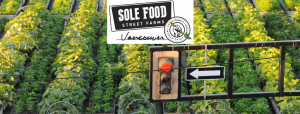
The world of business can be truly inspirational when you discover its branches that particularly help the whole society to thrive. Are there even any enterprises that bring community together, provide with the feeling of belonging and indeed serve a social mission rather than just maximize profits? Dreamy as it may sound, but I am talking about a so-called social enterprise, a representation of the ”humaine” part of business. If you want to know a little more in what way it exists and whether it is viable or not, this blog was written for you.
If you were asked which country comes across your mind when thinking about social entrepreneurship, what would you say? I would definitely answer Canada. It’s a widely known fact that its government invests a big part of the national budget in education and health care, the branches that have a direct relation with the level of population’s happiness. People play a crucial role in development of economy and thus the well-being of economically active citizens would help them reach their full potential and, over the long haul, economic potential of the country. But what if the governmental efforts in a country have fallen short of our expectations to relentlessly pursue this goal? Major social sector institutions are often viewed as inefficient. This is the moment when social entrepreneurs are needed as an alternative. This is the primary reason why social venture is important for sustainable development of the whole world. And I believe that the countries that encourage such type of business should be an example to follow.
Let’s take a closer look at how exactly a social venture can operate to improve social objectives and serve the common good. There are more than only one type of social needs that an enterprise can address. And I found one kind of a social enterprise, which was of particular interest to me, that serves two needs at the same time.
Sole Food Street Farms, based in Vancouver, whose key activity, according to Value Proposition Canvas, is transformation of vacant urban land into street farms, is now North America’s largest urban farm project that provides meaningful employment for people from Vancouver Downtown Eastside and supplies the city with healthy food. ‘Each location informs what we grow and how we grow it. We are producing food on an artisan level that any top chief of Vancouver would be proud to serve on their menu’(Michael Ableman,2016). The reason why the venture enthralled me is the whole innovative, creative-destructive concept of green economy behind the project. I believe it made a breakthrough and provided a really credible model of urban agriculture in Canada.
Personally, I admire such approach to business, when meeting social needs is put in priority, enabling the whole enterprise to grow and thrive.
Word Count:439
Reference:
Official site of Sole Food Street Farms http://solefoodfarms.com/
Lucy Lau, ”Green Living: Downtown Eastside’s Sole Food Street Farms Help Entire City.”Sept. 7th, 2016. Georgia Straight newspaper https://www.straight.com/life/775476/green-living-downtown-eastsides-sole-food-street-farms-help-entire-city